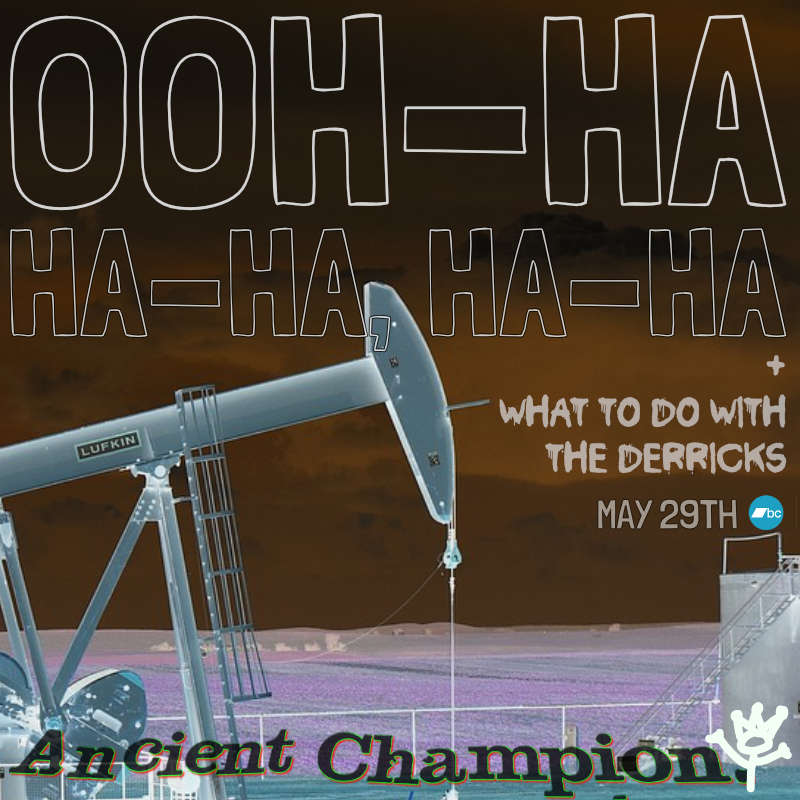OL: A few years ago, I was writing about the Momus re-releases on Cherry Red and felt that when I got to ‘Hippopotamomus’ that I could not, in the space of a short review, even begin to describe that record! What did you find, looking back at his work, the most taxing thing, the most difficult to put into words and to explain?
JR: There's a couple of things. Firstly, ‘Stars Forever’ (1999) became an enormous slog for me. Partly, I think, because I was writing it during lockdown, and you'd think that you’ll be more productive, but I wasn’t good with it. Another problem with ‘Stars Forever’ (note to reader - this is the album where he wrote thirty songs, one for every person or group who commissioned a song at $1,000 each. The funds raised went towards the costs incurred by a lawsuit against Momus by Wendy Carlos), is that he has to be…what’s the word? (pause), he has to be…nice! He has less restriction when writing about people he may know, but for the most part, he’s being reasonably nice. And each song is just a description of each person and, well, don't know those people!
OL: I mention that Momus has said that he’s not overly impressed by the songs on ‘Stars Forever’ John is quick to respond:
JR: Well, they’re not for the general audience are they? I don't think that people who write theme music or music for adverts always think much of the things I've written it for! It’s a job. And that’s the whole point of that album.
OL: I'm fascinated that you went back and wrote about The Happy Family (the band that Nick Currie, pre Momus, formed with ex-members of Scottish band Josef K). What did you make of The Happy Family?
JR: It seems to be an attempt to be a kind of band, it's got nothing to do with Momus, it was an attempt to follow a culturally political rather than a party political agenda. It was the sort of thing that Josef K were musically, and that a number of bands, certainly in Scotland, we're touching!
And, well, it doesn’t work (laughs), the album doesn't really work fully as a story. It’s not always obvious what they’re getting at? It starts with that song ‘The Salesman’, doesn't it? That’s one-ninth of the album. And then The Salesman is a character who dies! And then his son becomes the main character and…. if it was a film or television programme you’d say that it was really unbalanced. And that's where it falls down.
OL: As well as the songs themselves, Famous for Fifteen People also focuses on the artwork for each album. After we both agree that The Happy Family has by far the worst artwork of all Currie’s releases, I wonder what John regards as his favourite…
JR: Mmm. Let me go through them…. ‘Don't Stop The Night ‘ is very of its time, it looks like it’s from the late 1980s, it’s not my favourite but it is one of the best. The original ‘Hippopotamomus’ cover is great and for obvious reasons, it’s just funny. (note to readers: the Michelin tyre company were angered by the parody of their famous mascot on the sleeve and also the fetishistic content of the song ‘Michelin Man’, they threatened legal action and, subsequently, all unsold copies of the album were destroyed. A further edition without the offending sleeve and track was released instead).
One of my favourites though is ‘Oskar Tennis Champion’ (2003), it’s such an abstract cover. But really, I think you've got to go back to the image on ‘Tender Pervert’ (1988) as the quintessential image of him. There’s the cherry blossom, you have the Japanese influence, the minimalism of it. He’s holding his hands like horns above his head, he’s looking kind of lost and kind of innocent….but not any of those things! A bit like ‘The Bishonen’ character on the album. I think that it best represents what's on a record.
OL: When you spoke on a podcast recently, you said that your favourite Momus album was ‘The Ultraconformist’ (1992) (listening back to this, at this point my voice rises at the end of the sentence, as if in disbelief)
JR: I think that it’s either that or Oskar Tennis Champion’ (2003). The thing for me with ‘The Ultraconformist’, is that, as the first thing I heard by Momus was ‘Nicky’ and the second thing I heard was ‘Morality is Vanity’, I just love that musical style, that burlesque style. And also, ‘The Untraconformist’ is directly after ‘Hippopotomomus’ and he’s just thrown everything out of the window and gone ‘Here are some new songs that are completely uncommercial’ (laughs)
OL: Finally, the book traces the songs from Nick Currie/Momus up until 1995 (the website www.fifteenpeople.com goes much further), so when can we hope to see the next edition?
JR: Some of it is now done on the website, at the moment I’m up to ‘Folktronic’ (2000). Logically, the next volume should be 1996 to up to 2008, which is ‘JoeMus’ isn't it? Obviously, with 1996 - 2008, you’ve got all of the fun with the ‘Little Red Songbook’ and all the shenanigans surrounding that. (note – this is the album that led to the lawsuit by Wendy Carlos, see earlier note)
And then the third book would be from 2009 up until the end of the world, which is where we are now! As for a fourth book? (laughter) I don’t think that he’s going to retire at 67. Do you? (laughs).
And with that, we wrap up the interview. A few months later Momus releases another album (‘Athenian’) and then, in early autumn, an EP’s worth of new songs. I think about the fourth and fifth volumes of John’s Momus-related work and also of that image of Sisyphus rolling a huge ball up a hill.
John Robinson Week
An introduction to John Robinson Week →
John Robinson Week, The Excerpts →
Talking Momus All The Time (Interview with John) - Part 1 →
Momus Aside, You Ask? →
John Robinson's Teethgraters and Stuff... →
John's Momus book, Famous For Fifteen People is available now here

























